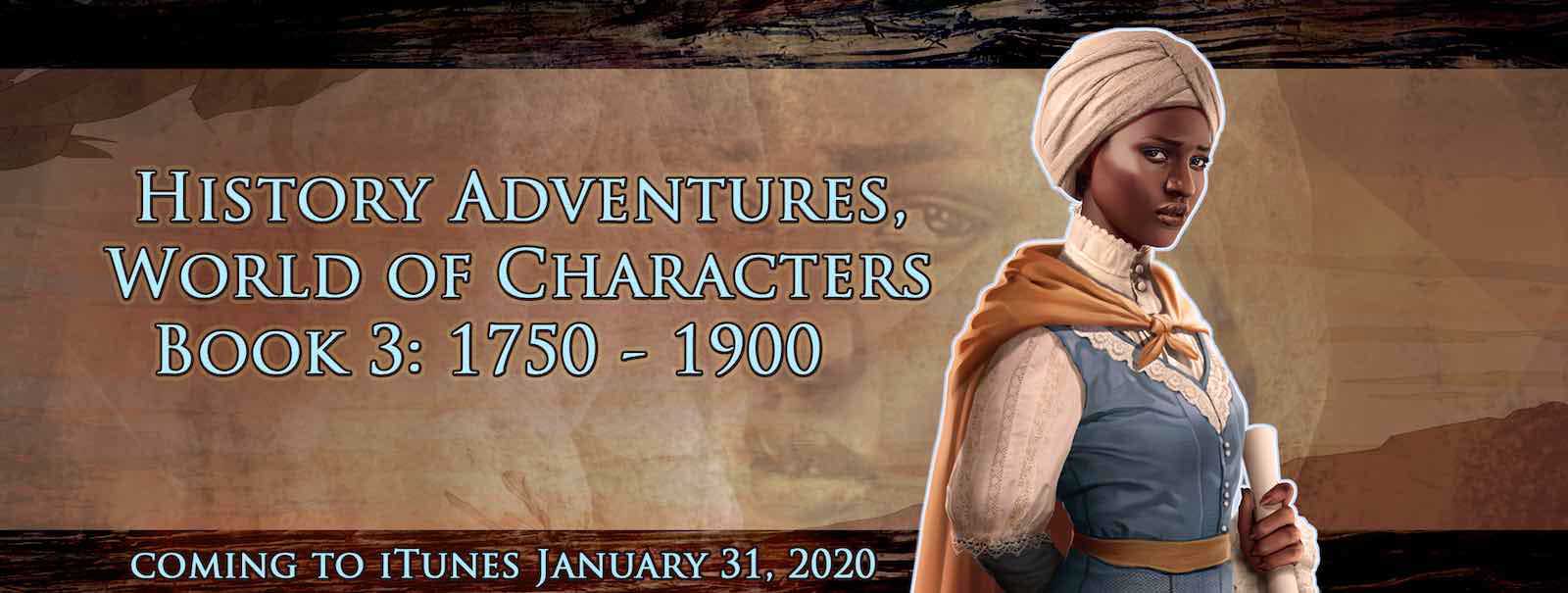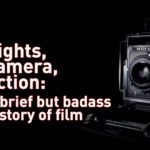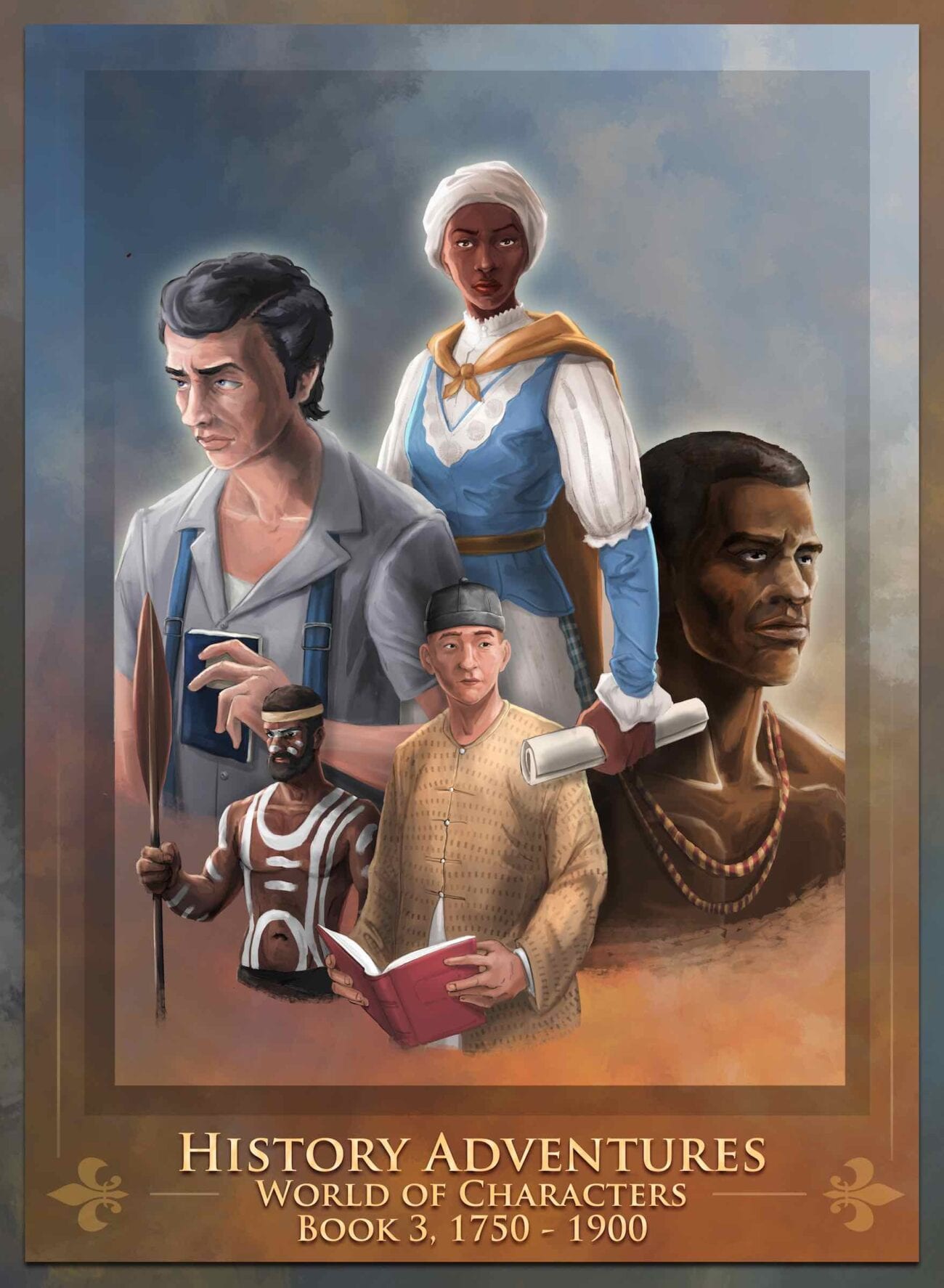
Here’s how ‘History Adventures’ makes history of the world fun
Spencer Striker, Ph.D.’s History Adventures couldn’t have come at a better time. As parents all over the US are scrambling to home school their children, the digital media professor and producer has delivered us the history of the world, in an enticing and entertaining format.
New England native Spencer Striker, Ph.D. has embraced both history and film production throughout his academic career, and his passion for the digital learning experience is palpable. Having cultivated his career around bringing knowledge to students worldwide, Striker has delivered a way that’s engaging enough for even the most reluctant learners to find themselves enthralled.
A next-generation learning experience
Upon taking a position with American University in Dubai’s Digital Media faculty in 2015, Spencer Striker’s passion became the next generation book application, History Adventures. Working with the International Big History Association, Spencer Striker, Ph.D. has been working tirelessly to develop the digital learning concept that brings the history of the world to our fingertips.
History Adventures is the first of its kind, tackling the history of the world in a format that keeps students wanting more. The narrative theme and interactive digital book application keep students focused on the lives and experiences of people who lived in those eras. Intriguing its audience by making them one with the story, History Adventures finds a way to keep everyone gripped by the stories, and experiencing the past as if they were there themselves.
Volume 3 of History Adventures was just released in January of this year and covers the period from 1750-1900 through the lens of 5 different people living through complex flash-points in time. We found ourselves completely immersed in their stories and the book is only made better by the fact that Striker is currently offering it for free!
Spencer Striker delivers how we want to learn
If we’re going to tackle such a daunting topic as the history of the world, we want Spencer Striker, Ph.D. teaching it. Thoroughly well versed in how to find ways to engross his students, Striker has spent the last 5 years determined to make history accessible to students of all backgrounds, and he has certainly delivered.
We were lucky enough to get to chat with Striker about History Adventures, his writing, and creating a definitive guide on the history of the world.

Tell us about your history as a writer. How did you start your journey?
My passion for combining history education with digital media design goes back to when I completed undergraduate degrees in both History and Radio-TV-Film at the University of Texas. While pursuing my Master’s at Indiana University, I did a deep dive into multimodal narrative-based creative expression, (however, I was a bit early, as mobile hardware had yet to become a viable multimedia platform).
Doctoral research I conducted at the University of Wisconsin, in 2012, laid the groundwork for the History Adventures interactive digital learning concept. Then, in 2013, I became the founding creative director for a digital learning startup based in Mountain View, CA, called Galxyz, gaining intensive, relevant professional experience.
Since returning to academia, kicking off with a research fellowship at Oxford University, and continuing the work at Northwestern University in Qatar, my major project has been the design and development of History Adventures—a project that combines my core interests in history education and digital media design.
What was your biggest influence to create History Adventures?
Probably the single biggest influence to create History Adventures is when I hear students tell me they think history is boring. Because I think history is totally fascinating—and I can’t imagine how anyone would find it boring!
However, I’ve come to realize it’s the way in which history is formally taught that somehow drains all the life out of it for students. All the drama and excitement and imagination-inspiring moments are not there in the classroom—but instead, it’s lists of dates and the names of kings and queens, etc., all laid out in leaden prose.
It’s not that history is boring but rather that the traditional way of teaching history is custom-designed to make it seem as boring as possible. So the whole purpose of History Adventures is to use modern digital media design techniques to show how inherently fascinating the study of history truly can be!
What great writers and historians are you inspired by?
I’ve been inspired by some excellent narrative histories lately, including S.C Gwynne’s Empire of the Summer Moon: Quanah Parker and the Rise and Fall of the Comanches, the Most Powerful Indian Tribe in American History; Dan Carlin’s new tome on catastrophe, The End is Always Near: Apocalyptic Moments, from the Bronze Age Collapse to Nuclear Near Misses; Cormac McCarthy’s ageless classic, Blood Meridian: Or the Evening Redness in the West.
[I’m also a fan of] the beautifully written In the Kingdom of Ice: The Grand and Terrible Polar Voyage of the USS Jeannette, by Hampton Sides; and the unflinchingly horrific history of the Belgian occupation of the Congo, King Leopold’s Ghost: A Story of Greed, Terror, and Heroism in Colonial Africa, by Adam Hochschild.
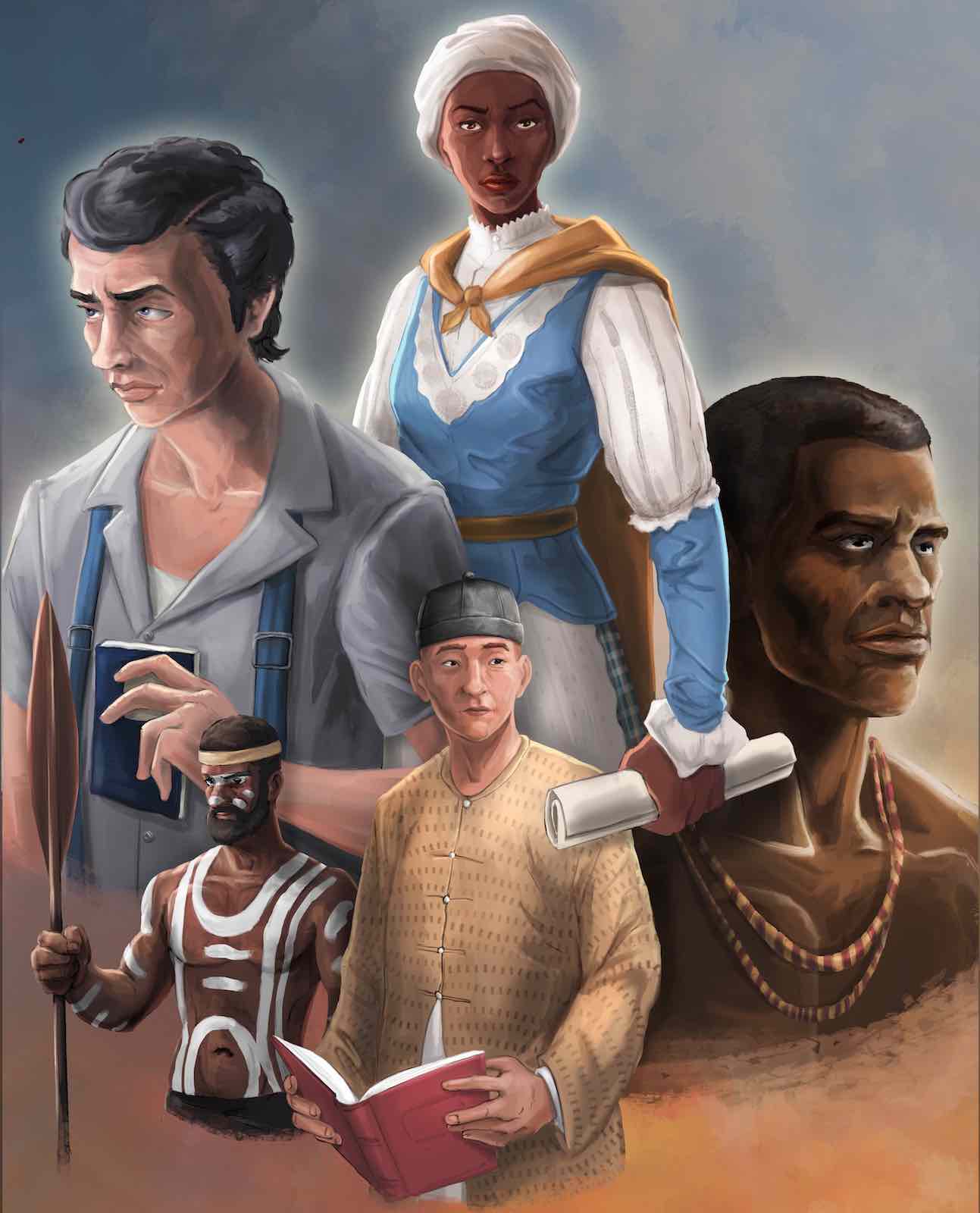
Are you involved in any historical communities?
I’m a member of the International Big History Association, which hosts its annual conference in India this year. First made famous by David Christian’s influential TED Talk, and by Bill Gates’ endorsement that Big History was his favorite subject: this is a brilliant, interdisciplinary community of historians who view history through the biggest lens possible.
Tracing everything back to the Big Bang—and making surprising connections between far-ranging fields, including chemistry, evolutionary psychology and biology, geology, and astronomy—interweaving these threads into one coherent story of the universe, the solar system, the earth, and all life as we know it, leading up to us, humankind, in this unique moment, termed the Anthropocene.
What five TV shows do you think everyone should watch this year?
Not surprisingly, my top 5 are shows that bring history to life: Chernobyl, Ken Burns’ The Vietnam War, Rise of Empires: Ottoman, Mindhunter, and of course, Vikings.
How was working on History Adventures? What did you learn from the experience?
Building History Adventures has been an absolute blast—it’s a perfect blend of my favorite disciplines: digital media design and history. I’ve had the opportunity to work with a hugely talented, international team of writers, historians, illustrators, animators, musicians, and sound designers—hailing from over 25 different countries, representing 6 continents.
Now that we’ve published the product to iTunes, it’s thrilling to see people all around the world interacting with our digital book. It’s been a truly rewarding creative journey so far.
What music inspires you to create?
I love listening to film scores—and I find them very creatively inspiring, helping you imagine the tone, feel, and potential emotion of a narrative scene.
I’m a huge fan of Hans Zimmer, Hildur Guðnadóttir, James Newton Howard, Junkie XL, Danny Elfman, Trent Reznor, and Atticus Ross, among many others. Guðnadóttir’s score for Chernobyl and Reznor and Ross’ score for Ken Burns’ The Vietnam War are two of my favorite recent scores—for evoking history in the most haunting, visceral way.
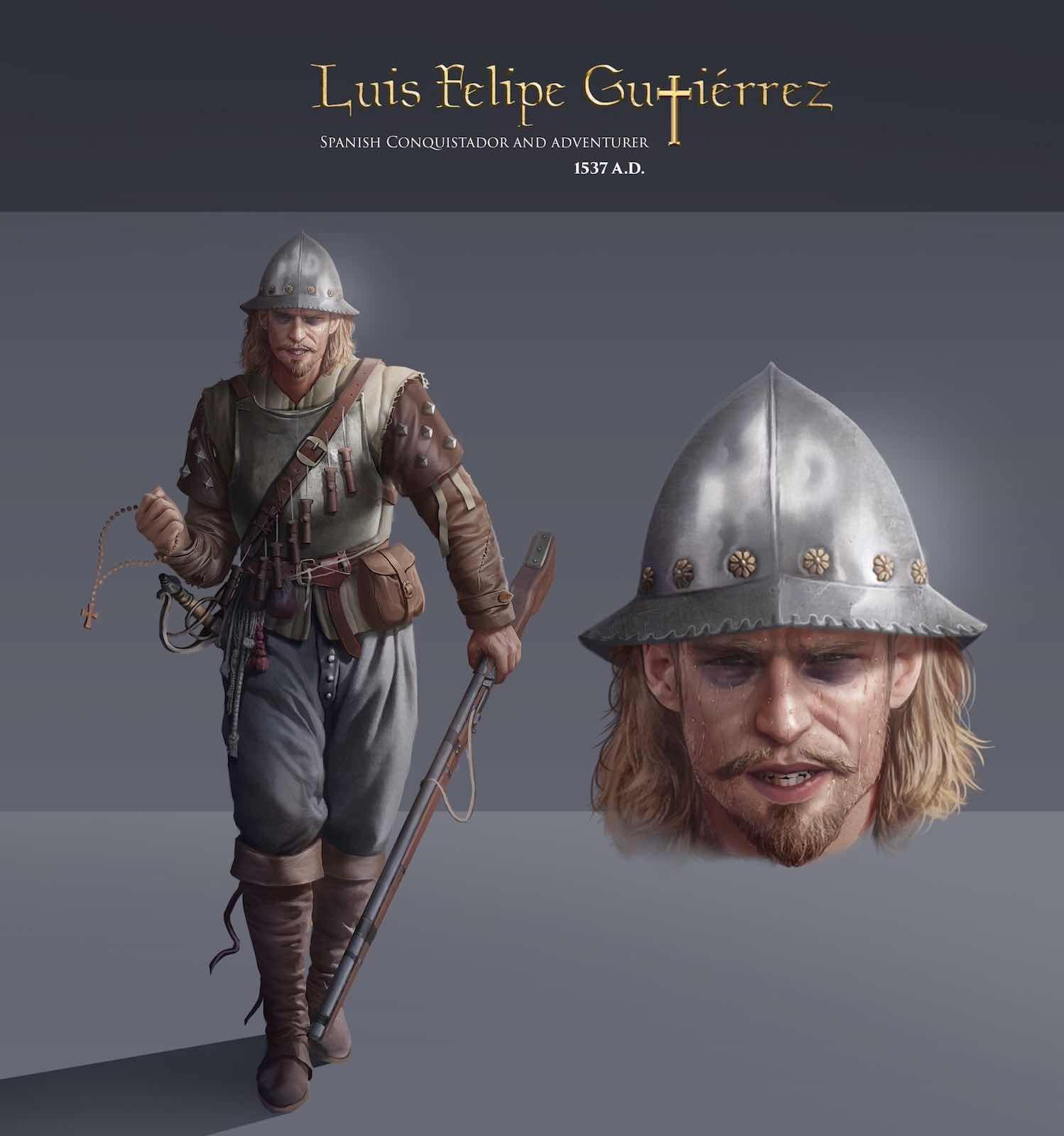
Talk us through your creative process.
The creative process for History Adventures is always an interesting journey. First, we determine what period of history we want to design the product about. For example, it might be 1750-1900, Revolutions & Industrialization; 1450-1750, Empires & Interconnections; or Global Pandemics of the Last Millenium, 1000-2000.
Then we try to think of individual characters whose stories define the age somehow, i.e. people whose narrative journeys are like microcosms of the greater themes at stake in the world. Usually, these are people at crossroads, both geographically and intellectually, whose lives intersect with these major, transcendent global themes of human history.
For example, when trying to conceptualize 6 characters that will define the 300 years from 1450-1750, we came up with:
- A late 16th century Spanish Conquistador in Peru;
- A man from Angola sold by Portuguese slave traders to the Jamestown colonists in 1619;
- A zamindar (tax collector) in Mughal India during the British conquest of the South Asian continent;
- An influential female advisor to General Tokugawa during the turbulent establishment of the first Japanese Shogunate;
- A young woman of Turkish and Byzantine ancestry living through the 1453 Siege of Constantinople by the Ottoman Empire; A Spanish alchemist living at the nexus of superstition, science, literacy, and the powerful Catholic Church, experiencing the Inquisition even as the Scientific Revolution is just gaining hold.
Once we have thought up some great characters, then we write historical fiction micro-narratives, that are rooted in authentic lived historical experience. And all of our stories end with the characters having to make a high stakes choice of some kind—and the outcome of that choice is always entirely unpredictable… just like in real life!
These stories are written as a collaboration between creative writers and historians/curriculum designers. Next, we concept design and illustrate the characters.
After which, we build a series of fully animated, interactive features that are based on this character/narrative/moment in history, including cinemagraph animations; animated infographics; kinetic typography; multimedia history content; fully interactive 3D scenes; music/sound; photo-realistic versions of the characters; and even custom-designed assessments. But all of these digital features stem from the character narratives established in the first phase of ideation.
How do you think History Adventures will help bring history into the lives of people?
History Adventures leverages the latest in mobile entertainment design—combining motion comics, animation, 3D graphics, data visualization, and original sound design—to make the learning experience compelling, intuitive, and fun. And the product utilizes the power of story, narrativizing the experiences of people who lived in past centuries—in different epochs and locations around the globe.
Students witness the very real moments these very real people lived through as if they were there. And via the empathy inspired by good storytelling, and branching narrative paths, students will feel the life or death stakes of decisions made in the moment.
The big picture goal of History Adventures is to make the connection between past and present more visceral, tangible, and real—and in the process spark enthusiasm for learning about the past… by bringing the pages of history to life.

What part of writing do you geek out about the most?
By situating our understanding of history within the context of the lives of real people, who lived in the past—we have the ability to see ourselves in their stories, and to imagine what it must have been like, and to empathize with their hardships, and the vicissitudes of fortune.
Influential historian, Yuval Noah Harari, author of Sapiens: a Brief History of Humankind (2011), claims the glue that binds societies together is not our genes, but rather, our stories. Story holds the power to open our imaginations to the world, giving meaning to the things we see, places we travel, people we care about—even form to our darkest fears.
Drawing inspiration from Robert Garland’s The Other Side of History: Daily Life in the Ancient World (2010): History Adventures conjures snapshots of compellingly real historical scenarios. The characters are not world-famous, like Alexander, Cleopatra, or Napoleon.
Rather, they are relatable, normal people—living in extraordinary circumstances. The narrative structure is like zooming in through portals in time, to observe—and feel the drama and excitement—of little slices of lived human experience. Interwoven into these narratives are insights that provide a richer context for understanding our own moment in time.
What’s your next project?
History Adventures, World of Characters: Global Pandemics. Telling the story of major pandemics in history through the perspective of characters living in different times and places around the world, including 14th century Europe(the Black Dead, bubonic plague), 16th Century Peru, (smallpox devastation of Native American peoples), 19th Century London, (and the discovery of the source of cholera), and the Spanish Flu of 1918, (the most deadly influenza viral outbreak in history).
We will bring in history, virology, immunology, and psychology—including the nexus between observational/scientific understanding and panic and superstition.
Have you worked with mentors in the past? How would you recommend people go about finding them?
I’ve had the benefit of working with some fantastic mentors in the past, who helped me immensely at different stages of my career. I would definitely recommend folks seek out and cultivate mentors—as we all benefit from the wisdom of smart, thoughtful people who have come before us.
In that sense, that’s what the study of history is all about: absorbing knowledge, stories, insights, and observations from people who lived before us. In my experience, many smart, knowledgeable people enjoy sharing their insights with the younger generations.
Often, the challenge is in identifying who will make a great mentor for you, and then taking the initiative to reach out to that person, and consciously cultivate the relationship. It requires some foresight and boldness, but it will definitely pay off down the road.
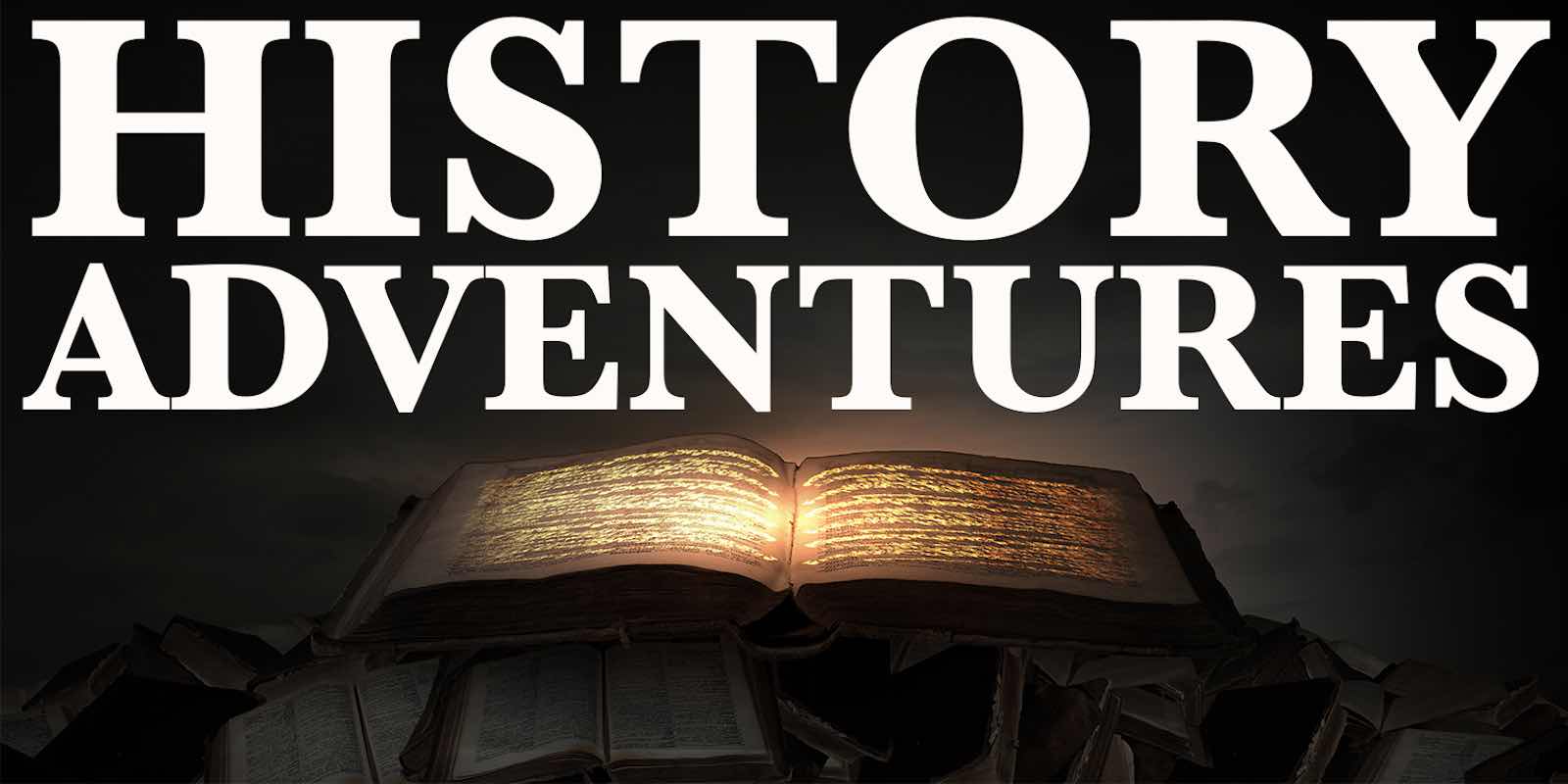
What has been your biggest failure?
When I was younger, I used to ruminate on this concept of failure and missed opportunities too much, I think. Perhaps that was some kind of neuroticism combined with an innate negativity bias. I experienced this haunting uncertainty and self-recrimination most strongly in my mid to late 20s and early 30s.
Now, in my day-job as a university professor, I tend to observe this same kind of melancholy and suffering in young people as well. One small mercy of aging is the mellowing that occurs. As long as you tried your hardest and did your best, and made the bold choices when faced with uncertainty, you can take comfort in the status of your life, and how things have shaken out.
Joseph Campbell, author of the Hero’s Journey, spoke about this in his famous interview series with Bill Moyers, which he completed just before he died. “If you do follow your bliss you put yourself on a kind of track that has been there all the while, waiting for you, and the life that you ought to be living is the one you are living… don’t be afraid, and doors will open where you didn’t know they were going to be.”
Sounds a bit cosmic, perhaps, but there’s some profound wisdom there. While our lives will inevitably be beset by little failures, if we did our best and tried our hardest in the face of perplexing challenges, we can see that the overall arc will be one we can be proud of, and in which we can find resolution and peace.
I’m a fan of a technique that Stoics call “negative visualization.” Put simply, the idea is that things could pretty much always be worse. History shows us this over and over again. And so we can always take solace in the fact that things could be far more awful—and they’re not!
What’s your mission as a writer? Name the most important thing you want viewers to experience when watching your projects.
I guess what I’m chasing is that spooky, visceral, imagination-inspiring feeling that one gets from well-executed historical drama—whether it’s a novel, a movie, a TV series, or an app—and you lose yourself in the world of the story for a while, and live in that distant, exotic time and place in your mind. I guess I’m kind of hooked on that!
What has been your biggest success?
Perhaps I’d have to say investing in education. Ultimately, I think doubling and tripling down on one’s educational journey is almost always a winning bet—because your knowledge of the world is a kind of evergreen asset… and as fortunes rise and fall, and professional opportunities come and go, a commitment to curiosity, and the never-ending process of lifelong learning, becomes the most important resource in one’s life.
Who would compose the soundtrack of your life?
Amazing question. Depends on my mood, I suppose, and the drama of the moment! Of course, I couldn’t go wrong with asking Trent Reznor and Atticus Ross to compose an original score to augment my life with that extra bit of intensity, emotion, and dramatic impact . . .
Spencer Striker, Ph.D. has us eager to learn, especially when the format keeps even the dryest topics fresh and fun. To stay on top of all of his newest projects, follow Spencer Striker, Ph.D. on Facebook and Twitter.


